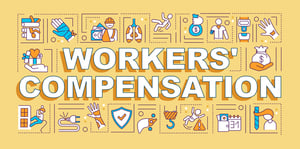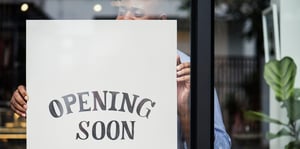 No Workers' Compensation Insurance program is perfect; however, if you want to improve your company's bottom line, it's imperative that you continually look for ways to improve your WC program.
No Workers' Compensation Insurance program is perfect; however, if you want to improve your company's bottom line, it's imperative that you continually look for ways to improve your WC program.
Here are five tips to help any business improve its Workers' Compensation Plan.
1. Get Started
This may sound like common sense, but sometimes the most challenging thing with any project is just getting started. Here are five areas that you should focus on to see the most significant impact. Pick one and get started!
- Improve safety
- Reduce costs
- Reduce litigation
- Build relationships with medical providers
- Get injured employees back to work
2. Create a Culture of Safety
The Bureau of Labor Statistics reported that in 2019 there were 5,333 fatal work injuries recorded and 2,814,000 non-fatal work injuries that resulted in 888,200 cases with days away from work. The median number of days away from work was eight. These work-related fatalities, injuries, and illnesses are costing U.S. businesses billions of dollars every year, which is why workplace safety should be a top priority at any company.
Creating a business culture that focuses on safety will have one of the most significant impacts on reducing your organization's number of injuries. That culture must be embraced by all employees at every level of the organizational chart.
Here are three tips to help create a culture of safety:
- Create a safety program with a set of controls designed to help protect employees from potential harm within the workplace.
- Ongoing training should be a big part of any safety program. According to the National Safety Council, "Investing in workplace training is money well spent. Employers with effective safety and health training programs benefit from fewer workplace injuries and claims, better employee morale, and lower insurance premiums."
- Employees should be recognized and/or rewarded for committing to workplace safety practices.
3. Set Program Goals
Bill Copeland said, "The trouble with not having a goal is that you can spend your life running up and down the field and never score." Research shows that setting measurable and attainable goals boosts performance because it motivates and challenges employees to increase their effort, allows them to focus better, and helps them prioritize.
Goals you may want to consider are reducing the number of injuries, reducing the time it takes to get an injured employee back to work or reducing the number of litigation claims.
Once you have specific goals in place, create a plan of action and consider recognizing or rewarding employees for helping accomplish those goals.
4. Avoid Common Mistakes
There are certain mistakes that many employers make. Knowing those mistakes is the first step to correcting them. Here are seven common Workers' Compensation mistakes to watch for:
- Not having a safety plan in place or not enforcing it
- Not having a return-to-work program
- Underestimating the projected annual payroll
- Not assigning the correct classification codes or not changing those classifications when business operations change
- Listing an employee as a subcontractor – on purpose or by mistake.
- Poor claims management
- Working with inexperienced insurance agents
5. Work With an Experienced Independent Workers' Compensation Insurance Agent
The agents at American Insuring Group specialize in Workers' Compensation Insurance. We have a clear understanding of the WC process and a proven track record of providing exceptional service to businesses – both big and small.
The American Insuring Group's independent agents can help ensure that you get the best coverage at the lowest cost on all of your business insurance needs because, as independent agents, they are free to shop and compare among competing insurance carriers. Give us a call at (800) 947-1270 or (610) 775-3848 or connect with us online today!



 Builders’ Risk Insurance is a type of
Builders’ Risk Insurance is a type of  If you want to manage the cost of
If you want to manage the cost of  Cargo Theft is a $15 to $35 billion industry that can drive up
Cargo Theft is a $15 to $35 billion industry that can drive up  Restaurant Insurance
Restaurant Insurance Would you be surprised to discover that technology used in sci-fi movies, such as Iron Man, could actually help reduce your
Would you be surprised to discover that technology used in sci-fi movies, such as Iron Man, could actually help reduce your  Construction worksites are filled with potential hazards that
Construction worksites are filled with potential hazards that 
 You know what they say, “Hope for the best but prepare for the worst and make sure you have the right
You know what they say, “Hope for the best but prepare for the worst and make sure you have the right  Most employers in Pennsylvania are required to have
Most employers in Pennsylvania are required to have 



